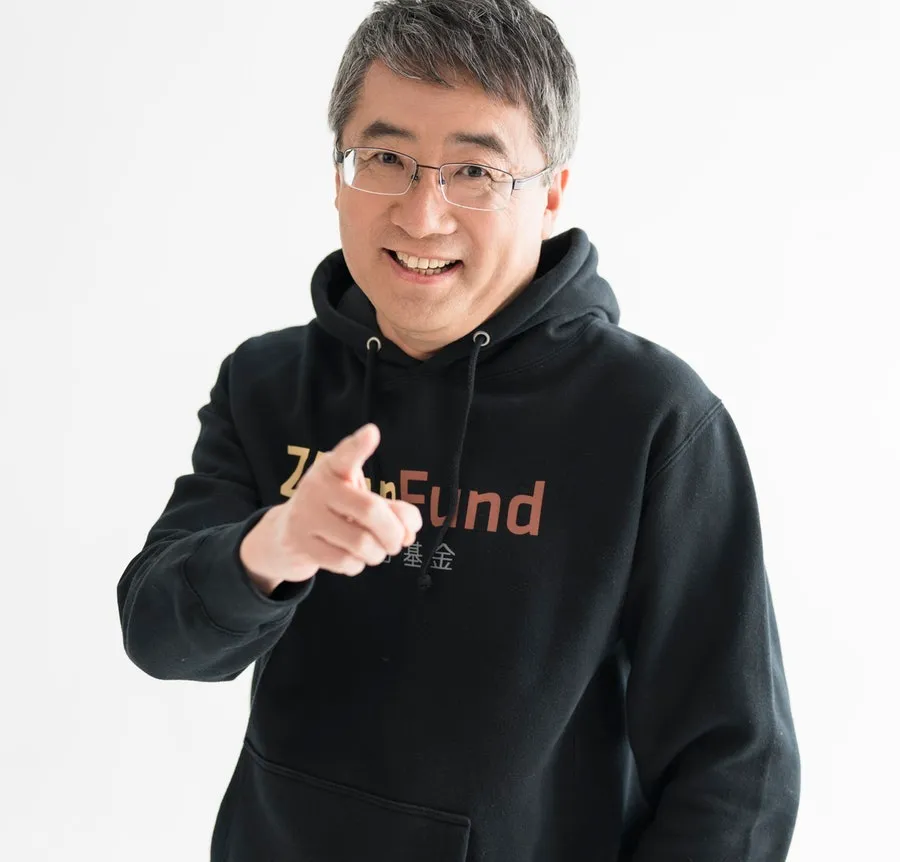At the early stage, you invest in people: ZhenFund's Victor Wang on the guiding philosophy of China’s biggest angel fund
A delegation from ZhenFund, which has backed eight Chinese unicorns including Xiaomi, recently visited India. Co-founder Victor Wang speaks to YourStory of how the fund came about due to the founders’ natural love for teaching, and what it hopes to achieve with Indian startups.
China’s ZhenFund is one of the most prominent early-stage investment institutions, having backed about 600 startups so far, including over 15 unicorns like Mia, Ofo, VIPKID, RED, Meicai, Zhaogang, amongst others based in China. Founded in 2011 by Bob Xiaoping Xu and Victor Wang, serial entrepreneurs, and co-founders of NSE-listed New Oriental School, about eight of ZhenFund’s portfolio companies, including Xiaomi, Jiayuan, and LightinTheBox, have launched their IPOs.
Closer home, ZhenFund is also the backer of Chinese fashion and lifestyle e-tailer Club Factory, which focusses on India. A delegation of portfolio entrepreneurs and VCs from the fund recently visited India to sniff out potential startups and collaborations in India.

ZhenFund’s Co-founder Victor Wang
In an enlightening conversation with YourStory, ZhenFund’s Co-founder Victor Wang throws light on why he started the fund, how they view the founder-investor relationship differently, and their fascination for India’s burgeoning startup ecosystem.
Edited excerpts from the interview.
YourStory: How did you end up setting up ZhenFund?
Victor Wang: Prior to founding ZhenFund with my friend Bob, both of us co-founded New Oriental School, which is now the largest college-preparatory school in China. The school launched its IPO in 2006 on the New York Stock Exchange, and is a company of $14 billion market cap. After working at school for 10 years from 1996 to 2006, Bob and I sort of retired after the IPO.
So, we started thinking about what we can do for the rest of our lives. We were absolutely sure that we didn't want to have another school even though we can make money. But we wanted to challenge ourselves to see whether there was something meaningful, exciting, and as well as an opportunity to make money.
So, after thinking of several ideas for almost two years, we decided to form an investment institution with an early-stage focus because we thought as an early investor or angel investor. The role is closest to the role of being a teacher because you actually nurture the startup, just like we used to train and help the students, when they had problems in life.
The only difference is that before the students paid the school money to get a rise and now as an investor, we just give them some money to help them to materialise their dreams.
YS: How has your journey with ZhenFund been so far?
VW: We had a humble beginning because the size of the Zhenfund in 2011 was $30 million, and now the money that we have to invest is already $1 billion. We are currently the largest angel fund in China.
YS: What do you see in a startup when you invest in them?
VW: In the past eight years, our philosophy of investment has been people-focussed. We believe that things like the business model, future trends of the market, etc, are really hard to predict at the early stage. The only thing that seems to be more stable is the people, especially the leaders of the company, which is the quality we look for in startups.
So, based on this philosophy we practise our investment. For the past eight years, we have invested in 600 companies and we have already harvested 15 unicorns. As an early-stage fund, it is hard to capture what we call a unicorn from a very early stage. How will you predict that in several years, this company will become a $1 billion company?
YS: What is the secret sauce of ZhenFund’s success?
VW: We try to differentiate us from the other early-stage investors in China, including institutions. We emphasise that we should be entrepreneurs' friends both inside and out. We have been continuously reforming the conventional way of making an investment in a company or in a person.
So, first, we shortened the term sheet into a three-paragraph document so that we save time and energy from the entrepreneur’s side and let them focus on the real thing that we are talking about. We shortened the sales and purchase agreement (SPA) into a two-page agreement.
And we have not done it because we are in a rush or hope that the founders can quickly sign the document or make it simpler. No! It's from the understanding of humanity because if you try to protect or if you try to stand on their side, they will guarantee your return. But, normally, investors think from their own point of view that you (the startup) guarantee me a good return ignoring the founders’ feelings, their rights, and their well-being.
Now, a lot of top-tier VC leaders have adopted these things and are trying to make the process less painful, more efficient, more entrepreneur oriented and friendly. This way you earn the trust of the entrepreneurs. A trustful relationship between the investor and the entrepreneur is very important and can be earned only by trying to understand and trust each other.
You can really form one team instead of two. And, both can really combine their goals into one. This can ensure becoming big in the market. As a by-product of this, you have a very handsome return.
YS: What are the key aspects of ZhenFund’s term sheet?
VW: We just want to guarantee that we have the first choice to put our money into the company. So, for the term sheet, what we care about is just to get a trust so that the entrepreneurs allow us to become their first investor.
Even though this is just a term sheet and not a 100 percent guarantee at this stage, we start helping the entrepreneurs already with what they need, contacts, connects, etc, no matter whether we do get the real opportunity to put money or not.
YS: What is the size of your investments?
VW: It varies. For the first cheque, it is in the range is $500,000 to $5 million. In rare cases, it can also go up to $10 million.

ZhenFund’s Co-founder Victor Wang
YS: You are the key investor in Club Factory, a Chinese ecommerce startup with a focus on India. What attracted you to invest in Club Factory?
VW: We did not invest in Club Factory because they do cross-border business with a focus on India. We invested simply because our philosophy is that we think the founding members, especially the founders, are very qualified to make something big no matter which market they want to practise in.
It so happens that the team decided to take on the Indian market and we are very happy to see that it is doing very well.
YS: This is your and ZhenFund’s first visit to India. Why now? What are you looking for in India?
VW: Overall, the purpose is to try to understand the Indian market because we know that the current situation from the point of view of startup landscape is very much like it was in China five to seven years ago. We believe that now the infrastructure for doing a successful startup is in place in India, especially this year when you have more and more mobile users. When demonetisation happened, more citizens made a bank account and started doing monetary transactions through mobile.
India has fintech technology in place, and young people have started seeing new opportunities in the big population. India will also witness an urbanisation process with more and more middle-class people demanding quality goods as they try to explore new ways of improving their lifestyle. I think it's very much like how China was about seven years ago. So, this time, the visit is to just see and smell the opportunities and potential in the future.
Another reason is that a lot of Chinese young entrepreneurs are trying to come to India as there is now no language barrier. The young Chinese generation speaks good English, and most of them were studying abroad and understand the global economy. So, wherever the opportunities are, they go and explore. The Indian market is going to attract more and more Chinese funds.
YS: Any immediate plans in investing in Indian startups?
VW: Not at this moment but this is the first trip for me as well as for the ZhenFund. So, it is already a very good sign that we want to think about India very seriously.










